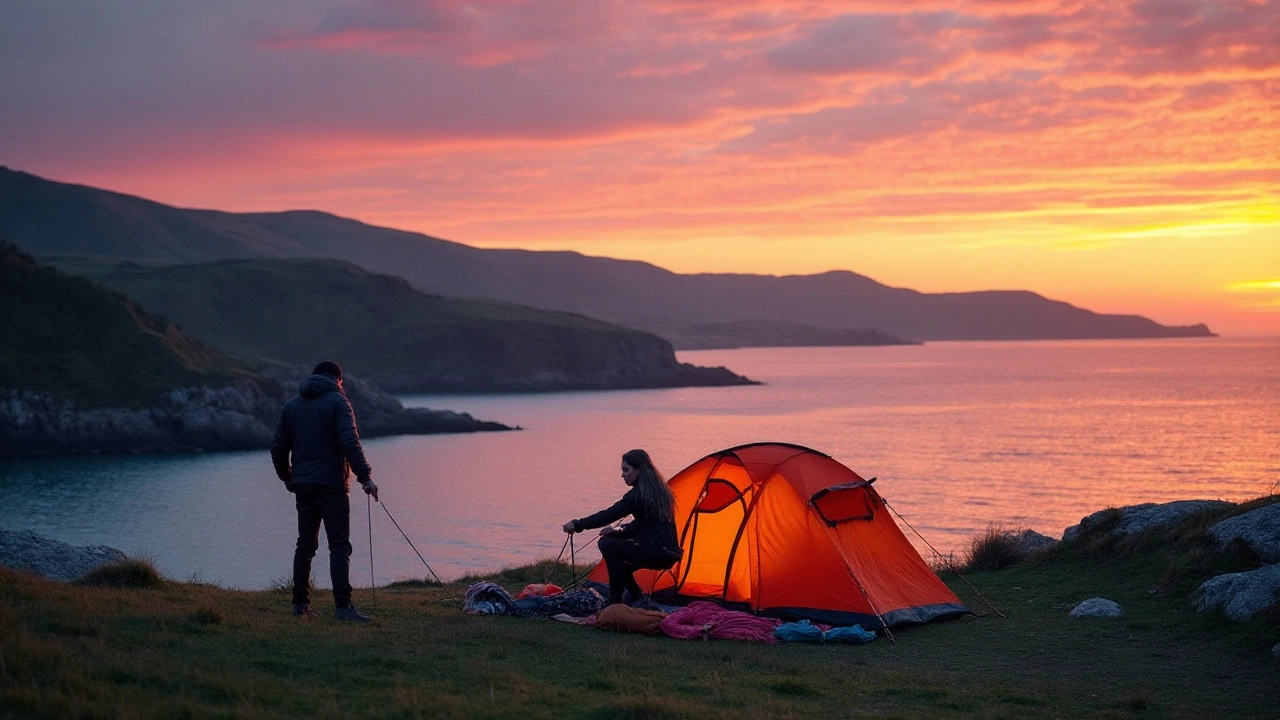Tent on Beach UK: What You Need to Know Before You Pitch
You've spotted that perfect stretch of sand, imagined a night under the stars and wonder – can you actually set up a tent there? The short answer is: it depends. The UK has a patchwork of local byelaws, coastal authority rules and national guidelines that decide whether you’ll be welcomed or asked to pack up.
Is it legal to camp on a UK beach?
In England and Wales most beaches are owned by the Crown, local councils or private estates. Most local byelaws forbid overnight stays unless a designated campsite exists. If you ignore the rule, you could face a fine of up to £500, a notice to leave or even a police ticket. Scotland is a bit friendlier – the Scottish Outdoor Access Code lets you camp on most unenclosed land, including many beaches, as long as you follow the Leave No Trace principles and stay away from private property or protected sites.
England’s coastal parks, such as the Norfolk Coast or the Cornwall Heritage Coast, often have specific restrictions during peak season. Some have “wild camping zones” where you can pitch for a night with permission, but you’ll need to check the council’s website or ask a ranger. In Wales, the Pembrokeshire Coast National Park generally bans wild camping, but the nearby RNLI Lifeboat stations sometimes allow a brief stay for safety reasons.
Practical tips for a safe, low‑key beach night
If you decide to go ahead, keep a low profile. Choose a spot away from the main promenade and any lifeguard or village facilities. Check the tide tables – you don’t want your sleeping bag floating away when the water comes in. A small, waterproof groundsheet will protect you from damp sand and keep your gear dry.
Bring a lightweight, quick‑setup tent with a low‑profile design. A tent with a rainfly that can double as a windbreak is handy, because coastal breezes can get fierce after sunset. A headlamp, a warm sleeping bag rated for 5°C, and a portable power bank for a phone are about all you really need.
Respect the environment: pack out every piece of litter, avoid building fires on the sand (most councils forbid it), and don’t disturb any wildlife. If you hear a ranger or see a sign that says “No camping,” pack up immediately – it’s better to lose a night than a fine.
Looking for a hassle‑free alternative? Many coastal towns now offer “glamping pods” or small cabins right on the beach. They give you the sea view and the comfort of a proper bed, while keeping you on the right side of the law. Booking a nearby campsite with a shuttle to the beach can also give you the same vibe without the legal headache.
Bottom line: you can camp on a UK beach, but you must do your homework first. Check local byelaws, respect tides, keep a low profile and leave nothing behind. If any of that sounds like too much work, choose a nearby legal site or a glamping option – you’ll still get that salty air and sunrise over the water, just without the risk of a fine.
Beach Camping in the UK: Sleeping in a Tent by the Sea
Beach camping in the UK can be an exciting adventure, offering unique sunsets and the soothing sound of the waves. However, knowing the rules and regulations is crucial as not all beaches allow tents. Planning ahead and understanding your camping location is key to a successful and legal night under the stars. From hidden coves to popular sandy stretches, the UK offers a variety of experiences for those willing to explore.
